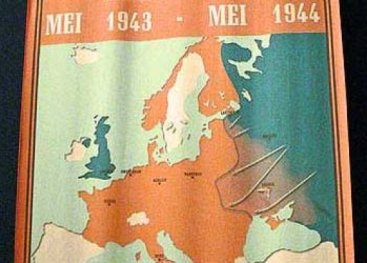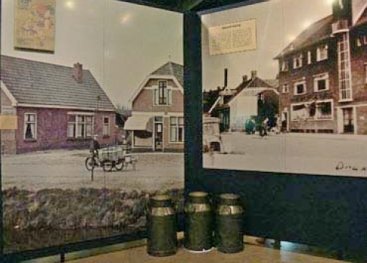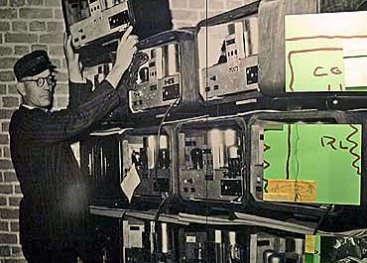
Crossing the border
'England voyagers'
After May 1940, the borders were closed. Even so, more than 9,000 people managed to escape the occupied Netherlands. Most of them hoped to get to England to join in the fight against Germany. Initially, these 'England voyagers' tried to cross the North Sea in small boats. This was made impossible by the construction of the Atlantik-Wall along the coast.
The most important thing was to practise assembling the small parts of the boat in the pitch dark without making any noise.
Crossings
Now the journey followed secret border crossings through occupied Belgium and France to Switzerland or Spain. From these neutral countries the voyagers sometimes succeeded in reaching England.
Students Jaap van Hamel and Rudolph van Daalen Wetters were determined to get across to England. They had a collapsible rubber boat and a small outboard motor. They prepared for the voyage carefully.

Picked up after five days
During the night of June 20th 1940 they put out to sea near Katwijk, close to a German guard post. At a safe distance from the coast they tried to start the motor, but it wouldn’t start. They threw it overboard and continued by sailing. After five days they were picked up by an English warship.
When they hauled us on board we could no longer walk. We suffered terribly from thirst.

Mrs. Hooijer
Mrs Hooijer opened her country house near the Belgian border to Allied pilots, escaped prisoners of war and England voyagers. She offered them shelter and pampered them until they were helped across the Belgian border by a passeur. When they left, her guests expressed their gratitude in a notebook. Even so, Mrs Hooijer often found them extremely rude.
'It's better to have thirty Frenchmen than three Americans,' she wrote. 'They're so terribly spoiled and they haven't experienced anything yet. It struck me how little they know about the war. They just fly over a city and drop their bombs. I asked if they ever tried to avoid hitting a church. But no, they were only German churches.'
Hiking boots
The Jewish Mrs. Hertzberger and her husband Eddie escaped to England in 1943 via Switserland, France and Spain. A passeur took them across the border in the Pyrenees. It was raining and they got soaked to the skin. They crawled on hands and knees for the last part of the journey.

Espionage
Information was also smuggled into England. Various espionage groups gathered data on the German army. They made reports that were translated into secret code and telegraphed to England. Sometimes the reports were recorded on microfilm and taken to England via escape routes. Secret agents were parachuted into the Netherlands to try to improve spy contacts.
Broadcasting suitcase

secret agent Sjoerd Sjoerdsma.
Germans could receive broadcasting signals and trace their origins. So transmission stations were set up within densely developed cities and evacuated after 30 minutes. This was made easier by the small broadcasting cases brought along by the secret agents who had been parachuted in.

